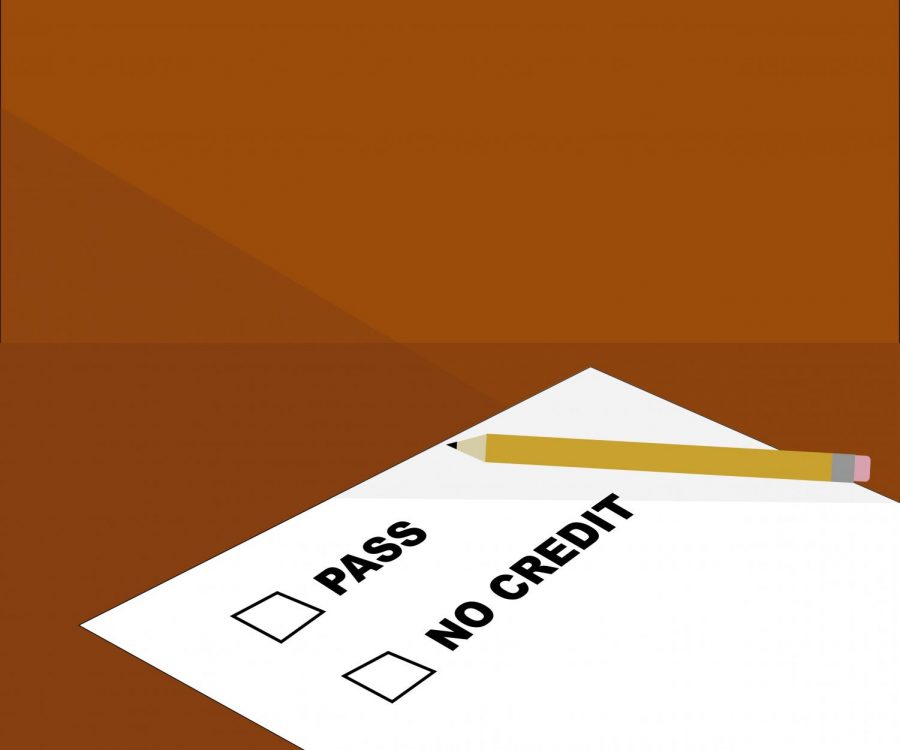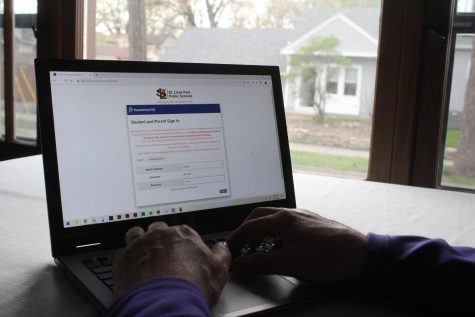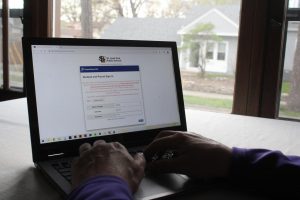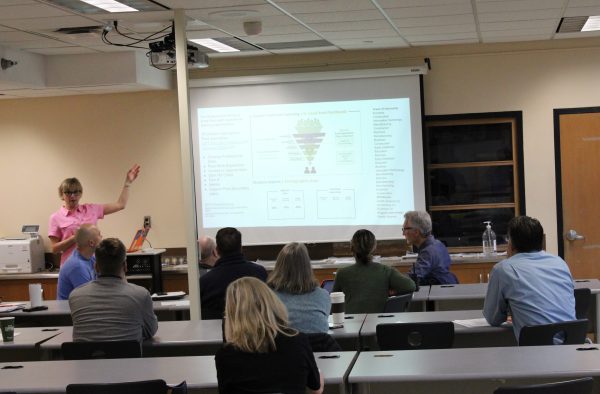Hold students harmless: Park moves to pass-no credit system
Decision made to prioritize health, well-being
Art by Sophie Livingston. Park moved to a pass-no credit grading system for the remainder of the 2019-2020 school year May 1. According to Principal Scott Meyers, percentages this semester will not affect student’s grade point averages and the passing grade is 60%.
May 8, 2020
With schools closed across the state for the rest of the school year, Superintendent Astein Osei said Park decided to move to a pass-no credit grading system.
“At this point in time in our country, people are under some tremendous stress and we’re just under the belief that this period alone doesn’t reflect who our students are academically, socially or emotionally,” Osei said.
The change to pass-no credit grading can help students focus on things other than school if needed, according to senior Morgan Graves.
“Taking away the pressure to achieve certain letter grades makes it possible for students to really be proactive about their own health, and I really think that’s kind of center focus right now,” Graves said.
According to Principal Scott Meyers, there is no perfect grading system, but he feels the pass-no credit system is the most fair for students and staff. Meyers went on to say that the decision was informed by other schools and postsecondary institutions moving to a “hold students harmless” policy, meaning this semester doesn’t affect students negatively.
“We started to recognize quite soon some of the struggles that students were having. It was really students that have had a variety of academic performances before we had made the transition and so we felt like we had heard from enough students that were struggling that something needed to be some adjustments,” Meyers said.
With the new pass-no credit system, a passing grade is 60% and a grade below that does not automatically mean a student must retake the class, according to Meyers.
“We have three quarters worth of letter grades because it really was the last part of third quarter that was affected. We have a good amount of data to help determine that for students so we would be giving a recommendation, based on what their performance was during that time,” Meyers said.
Graves said the change to the grading system levels the playing field for students who have different levels of access to technology.
“I really am pleased about it because I think that there are many merits for it,” Graves said. “The first one being that there are so many students who do not have equal opportunity across the board to achieve the same grade level, not because of their lack of trying or whatever, but just because of boundaries around technology.”
Freshman Emma Samuels said the grading change was disappointing to her because she had been doing well academically this semester.
“I know that I get to get those grades if we need to for college, but I feel like people should have more of an option as to whether or not they want to switch to (pass-no credit) or keep their letter grades,” Samuels said.
Meyers said the administration acknowledges the disappointment some students may feel at not having this semester’s grades affect their grade point averages, but assures students that post-secondary institutions will be aware of the changes Park made.
“We are going to add a disclaimer to both our school profile message, which some colleges and universities ask for, as well as on our general transcript, to draw attention to that for this period of time that we are currently doing this temporary grading, that the grades appear differently and to reach out to us if they have questions,” Meyers said.
Grading during a pandemic presents unique challenges, according to Osei, because expectations, rigor and focus have all been modified to work with distance learning.
“The main piece was really just thinking about students overall health and well-being and wanting to really make sure that we are recognizing that trying to find traditional grades in a non-traditional format can be really challenging as it doesn’t reflect the same level of rigor in a distance learning format,” Osei said.
During the last weeks of the school year, Samuels said the switch in grading system is going to make her less inclined to work on school work.
“It’s definitely going to lower my motivation to get stuff done because at this point I don’t think unless I like fail all of my finals and all of my summatives, I don’t think I could get any F’s in my class, or get no credit grades,” Samuels said.





















